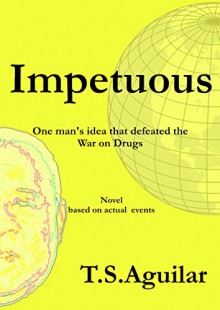The War on Drugs - initiated by US President Richard Nixon in the 1970s - was defeated on the day of its proclaimed biggest victory. It was Thursday, 2.December, 1993, when the drug overlord Pablo Escobar died from a self-inflicted gunshot to the head. Yet, the defeat of the War on Drugs was not...
show more
The War on Drugs - initiated by US President Richard Nixon in the 1970s - was defeated on the day of its proclaimed biggest victory. It was Thursday, 2.December, 1993, when the drug overlord Pablo Escobar died from a self-inflicted gunshot to the head. Yet, the defeat of the War on Drugs was not a one-day affair. It had started two years earlier on Wednesday, 23.October 1991, the day the Second Generation, that is, the highly educated sons and daughters of Colombian drug bosses had started to take over the business of their fathers.
The Second Generation has been and still is extremely successful to this day in its endeavour. It controls today more than ninety percent of the cocaine and heroin trade worldwide worth hundreds of billions of dollars. How did it come about?
The protagonist Oscar Antonio Ortiz Acosta, a happy-go-lucky small time drug dealer from Colombia operating in the Central American country Costa Rica had a brilliant idea on Friday, 15.September 1989. After he read about the capture of cocaine and confiscation of drug money worth millions of dollars, he developed a plan to let the drug business disappear behind the screen of a global network of legal businesses. And as the old and proven wisdom states: An idea whose time has come is unstoppable.
But Oscar’s path wasn’t an easy road to success. Instead of being lauded for his forward thinking, his idea is taken the wrong way by Pablo Escobar and almost costs him his life. His descent into hell of a prison in Central America comes to an end when the Second Generation of Colombian drug overlords are made aware of his idea about eighteen months later. They arrange an audacious prison break and spirit him away to a health resort in Panama. A woman, Vanessa Camacho, nurses Oscar back to health. Her unwavering support gives him the confidence for her to become his sidekick in the endeavour of putting his idea into practice.
Within a short eight months this couple turns the traditional drug trade on its ear - in North America, Europe and Asia. Oscar manages to arrange the cooperation with the Golden Triangle, which turns out to be an unbeatable pact. The Colombians ship all the illicit drugs and the Asians transfer all the drug money making it legal in the process. Neither the covert shipping of drugs nor the transfer of money has ever been cracked by any drug enforcement organisation anywhere in the world. What followed in the wake of Oscar’s trip around the world was an unprecedented wave of unintentional suicide of drug addicts due to overdosing with pure and unadulterated heroin.
As stated above, the War on Drugs as conducted to this day has been defeated. It is a futile undertaking because the careless prescription of addictive opiate drugs by our self-proclaimed gods in white dustcoats creates every day more and more drug addicts. When these addicts can’t afford to pay for the expensive prescription drugs any longer, they turn to the relatively cheap and easily available alternatives heroin and cocaine.
The illicit drug trade has an estimated growth rate of 8% per annum and higher in countries with a growing middle-class and abundant wealth. It has reached a total volume of almost one trillion dollars in 2016 according to the UN Office on Drugs and Crime. This will continue and will go hand in hand with a rise in crime as can be seen in Mexico and other countries until the world starts to pay heed to the Colombian President Juan Manuel Santos’ call for a worldwide debate on the decriminalisation, regulation and legalization of illicit drugs, specifically cocaine and heroin.
Note: The names of persons and places in this book have been changed to protect the innocent as well as the guilty, except the names of public figures.
show less

